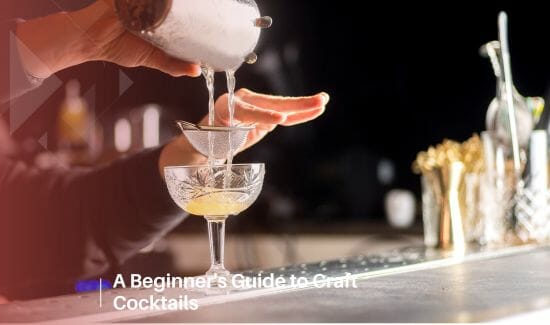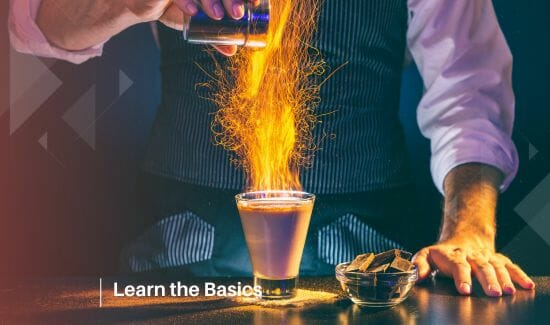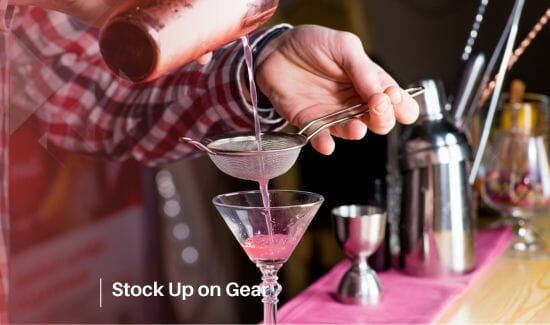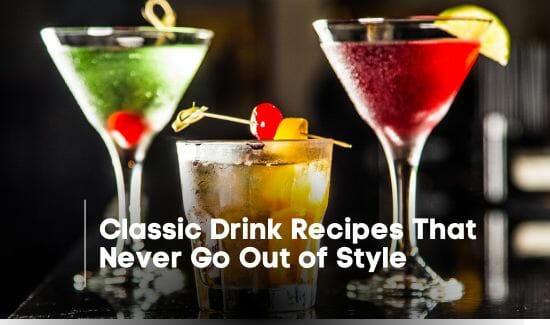
The world of craft cocktails can seem daunting to a beginner. With so many ingredients, techniques, and obscure recipes, it’s hard to know where to start. But learning how to make great cocktails at home is easier than you think. With a bit of information and some essential cocktail tools, anyone can become a craft cocktail mixer.

Learn the Basics
There are a few key fundamentals to learn before diving into making cocktails:
Spirits
The base of any cocktail is the spirit. Common spirits used in cocktails include gin, rum, whiskey, tequila, and vodka. It’s important to know the flavor profiles of each. For example, gin has pine and herbaceous notes while rum brings sweet and tropical flavors.
Modifiers
Modifiers are used to enhance or change the base spirit flavor. Examples are vermouth, bitters, liqueurs, syrups, juices, and other mixers. Getting to know how these taste on their own will help you understand how they change a cocktail.
Ratios
Most cocktails follow specific ratios of spirit to modifiers. A good starting point is a 2:1 ratio of spirit to modifiers. Adjust according to taste.
Technique
Proper technique is crucial for crafting a balanced drink. Shaking, stirring, building in the glass, and straining are all standard cocktail techniques to practice.

Stock Up on Gear
You don’t need a lot of expensive tools to get started with craft cocktails. A few essentials will get you mixing drinks in style:
- Shaker – Usually made of stainless steel, it has a built-in strainer and is essential for shaking cocktails.
- Strainer – Used in conjunction with a shaker when a cocktail is strained into a glass. A Hawthorne strainer is a common choice.
- Jigger – Essential for measuring out correct proportions. Get one with measurements on each side.
- Muddler – Used to mash fruits, herbs, and other ingredients to release flavors. A wooden muddler is standard.
- Bar spoon – Long-handled spoon used for stirring cocktails. The twisted shaft allows liquids to move freely.
- Citrus juicer – Freshly squeezed citrus juice is a common ingredient, so a hand juicer is very useful.
- Mixing glass – Used for stirring cocktails and building layered drinks. Can also be used for shaking instead of a shaker.

Start with 2-3 Cocktail Recipes
When first venturing into mixology, start small with just a couple of cocktail recipes. This allows you to get used to the techniques and ratios. Work your way up from there once you feel comfortable.
Here are three classic cocktails that every beginner should know:
Whiskey Sour – A simple shaken cocktail with whiskey, lemon juice, and sugar. Adjust the sugar syrup to balance the sourness.
Negroni – An equal ratio of gin, Campari, and sweet vermouth. Straightforward to make and endlessly adaptable once you know the base recipe.
Margarita – Tequila, orange liqueur, and lime juice in either a shaken or blended drink. A salted rim is optional. Master this party favorite.
Experiment and Grow Your Mixology Skills
Once you’ve made a few basic recipes, start experimenting to improve your skills and find cocktails you enjoy most:
- Try new spirits – branch out from what you usually drink
- Play with seasonal ingredients like berries, citrus, herbs and spices
- Make your own simple syrups, infusions, and shrubs
- Look for interesting bitters and unique liqueurs to expand your flavor options
- The riff on classic recipes by tweaking ratios or switching up ingredients
- Study cocktail history and culture to expand your knowledge
The more you experiment behind the bar, the better you’ll get at crafting amazing cocktails. Use your creativity and taste buds to guide you.
Conclusion
Learning to make craft cocktails seems intimidating as a beginner, but getting started only requires a few basic spirits, modifiers, tools, and recipes. Master fundamental techniques like shaking and stirring. Experiment with new ingredients and tweak classic recipes to improve your mixology skills over time. With a small home bar setup and some practice, anyone can become a cocktail crafter. So pick up a shaker and start mixing! Salud!
FAQs:
What are some beginner-friendly cocktails?
Some easy cocktails for beginners are a Moscow Mule (vodka, lime, ginger beer), Gin & Tonic (gin, tonic water), Whiskey Sour (whiskey, lemon, sugar), and Paloma (tequila, grapefruit juice).
Do I need to use fresh juices?
Fresh juice is always best, but you can substitute bottled juices if needed. Make sure they are 100% juice with no added sugars.
What glassware do I need?
To start, all you need are rocks glasses, a cocktail shaker, and a strainer. Expand your collection over time as you make more cocktails.
What’s the difference between shaking and stirring?
Shaking aerates the drink for a lighter, frothier texture. Stirring gently mixes and chills without adding air bubbles.
Any tips for garnishes?
Citrus twists, olives, berries, herbs, and pickled items all make great garnishes. Cut citrus peels into a thin spiral for an elegant look.

As a dedicated blogger, I share insights, tips, and knowledge on all things caffeinated and beyond. I firmly believe that a well-brewed cup of coffee or a skillfully crafted cocktail has the power to unite people and ignite engaging conversations.


